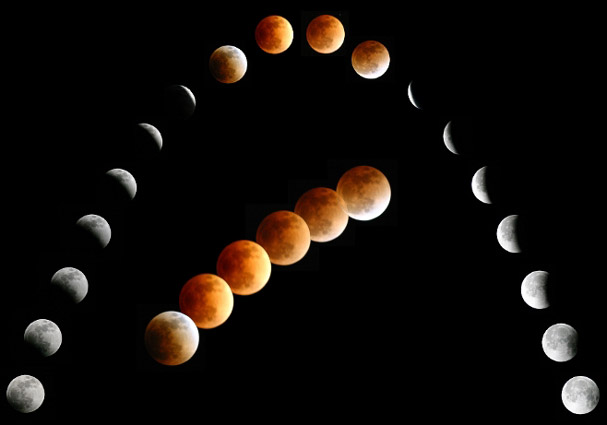Difference between revisions of "May 5, 2004"
| (8 intermediate revisions by the same user not shown) | |||
| Line 1: | Line 1: | ||
__NOTOC__ | __NOTOC__ | ||
=Magnificent Greek Eclipse!= | =Magnificent Greek Eclipse!= | ||
| + | <!-- Start of content --> | ||
<p align="center"> | <p align="center"> | ||
<table width="90%" border="0" align="center" cellpadding="6" cellspacing="2"> | <table width="90%" border="0" align="center" cellpadding="6" cellspacing="2"> | ||
| Line 12: | Line 13: | ||
<table width="100%" border="0" cellpadding="8"> | <table width="100%" border="0" cellpadding="8"> | ||
<tr> | <tr> | ||
| − | <td><div align="center"><span class="main_sm">Image Credit: [mailto:anthony@perseus.gr Anthony Ayiomamitis]</span></div></td> | + | <td><div align="center"><span class="main_sm"><p>Image Credit: [mailto:anthony@perseus.gr Anthony Ayiomamitis]</p></span></div></td> |
</tr> | </tr> | ||
</table> | </table> | ||
| Line 18: | Line 19: | ||
<p class="Story" align="center"><b>Magnificent Greek Eclipse!</b></p> | <p class="Story" align="center"><b>Magnificent Greek Eclipse!</b></p> | ||
<p class="story" align="left"></p> | <p class="story" align="left"></p> | ||
| − | <p>Across many parts of Europe clouds and rain blocked the lunar eclipse last evening. But in Athens, Greece, the clouds cleared 45 minutes before first contact and Anthony Ayiomamitis clicked away every five minutes, documenting the changing hue of the Moon as it orbited through Earth's shadow. Early in the morning Anthony composited his images to fashion this dramatic mosaic. He also reported that, "totality was quite dark ... I was needing 2-4 sec exposures at ISO 1600 to get decent histograms. Also, we have a very nice double star system near the moon during totality (alpha Libra)." I am surprised at the darkness, for as I said[ | + | <p>Across many parts of Europe clouds and rain blocked the lunar eclipse last evening. But in Athens, Greece, the clouds cleared 45 minutes before first contact and Anthony Ayiomamitis clicked away every five minutes, documenting the changing hue of the Moon as it orbited through Earth's shadow. Early in the morning Anthony composited his images to fashion this dramatic mosaic. He also reported that, "totality was quite dark ... I was needing 2-4 sec exposures at ISO 1600 to get decent histograms. Also, we have a very nice double star system near the moon during totality (alpha Libra)." I am surprised at the darkness, for as I said [[May_2,_2004|two days ago]] most of the conditions that cause dark eclipses were lacking. Or maybe my/our understanding is lacking! </p> |
| − | <p> Congratulations, Anthony! | + | <p> Congratulations, Anthony!</p> |
<p class="story"><b>Related Links:</b><br>[http://sify.com/news/scienceandmedicine/fullstory.php?id=13468389 Eclipse Seen in India]</p> | <p class="story"><b>Related Links:</b><br>[http://sify.com/news/scienceandmedicine/fullstory.php?id=13468389 Eclipse Seen in India]</p> | ||
<p class="story"> <b>Technical Details:</b><br> | <p class="story"> <b>Technical Details:</b><br> | ||
A Canon EOS 300d was used at the prime focus of a TeleVue Pronto which in turn was piggybacked onto a Celestron 14" SCT and Losmandy G11 GEM. Exposures were taken every five minutes and assembled in Photoshop for sub-selection and for the creation of the collage. </p> | A Canon EOS 300d was used at the prime focus of a TeleVue Pronto which in turn was piggybacked onto a Celestron 14" SCT and Losmandy G11 GEM. Exposures were taken every five minutes and assembled in Photoshop for sub-selection and for the creation of the collage. </p> | ||
<p class="story">Complete Imaging and Image Details available at [http://www.perseus.gr/Astro-Eclipses-2004-05-04.htm http://www.perseus.gr/Astro-Eclipses-2004-05-04.htm]</p> | <p class="story">Complete Imaging and Image Details available at [http://www.perseus.gr/Astro-Eclipses-2004-05-04.htm http://www.perseus.gr/Astro-Eclipses-2004-05-04.htm]</p> | ||
| − | <p | + | <p><b>Yesterday's LPOD:</b> [[May 4, 2004|Inside Nectaris]] </p> |
| + | <p><b>Tomorrow's LPOD:</b> [[May 6, 2004|Heavenly Hevelius]] </p> | ||
<p class="story"> </p></td></tr> | <p class="story"> </p></td></tr> | ||
</table> | </table> | ||
| Line 35: | Line 37: | ||
<td><p align="center" class="main_titles"><b>Author & Editor:</b><br> | <td><p align="center" class="main_titles"><b>Author & Editor:</b><br> | ||
[mailto:tychocrater@yahoo.com Charles A. Wood]</p> | [mailto:tychocrater@yahoo.com Charles A. Wood]</p> | ||
| − | < | + | <!-- Cleanup of credits --> |
| − | + | <!-- Cleanup of credits --> | |
| − | < | + | <!-- Cleanup of credits --> |
| − | + | <!-- Cleanup of credits --> | |
| − | < | + | <!-- Cleanup of credits --> |
| − | < | + | <!-- Cleanup of credits --> |
| − | < | + | <!-- Cleanup of credits --> |
| − | <!-- | + | <!-- Cleanup of credits --> |
| − | < | + | <!-- Cleanup of credits --> |
| − | < | + | <!-- Cleanup of credits --> |
| − | + | <!-- Cleanup of credits --> | |
| − | < | + | <!-- Cleanup of credits --> |
| − | ---- | + | <!-- End of content --> |
| − | + | {{wiki/ArticleFooter}} | |
| − | |||
Latest revision as of 19:16, 7 February 2015
Magnificent Greek Eclipse!
Image Credit: Anthony Ayiomamitis |
|
Magnificent Greek Eclipse! Across many parts of Europe clouds and rain blocked the lunar eclipse last evening. But in Athens, Greece, the clouds cleared 45 minutes before first contact and Anthony Ayiomamitis clicked away every five minutes, documenting the changing hue of the Moon as it orbited through Earth's shadow. Early in the morning Anthony composited his images to fashion this dramatic mosaic. He also reported that, "totality was quite dark ... I was needing 2-4 sec exposures at ISO 1600 to get decent histograms. Also, we have a very nice double star system near the moon during totality (alpha Libra)." I am surprised at the darkness, for as I said two days ago most of the conditions that cause dark eclipses were lacking. Or maybe my/our understanding is lacking! Congratulations, Anthony! Related Links: Technical Details: Complete Imaging and Image Details available at http://www.perseus.gr/Astro-Eclipses-2004-05-04.htm Yesterday's LPOD: Inside Nectaris Tomorrow's LPOD: Heavenly Hevelius
|
Author & Editor: COMMENTS?Register, Log in, and join in the comments.
|




